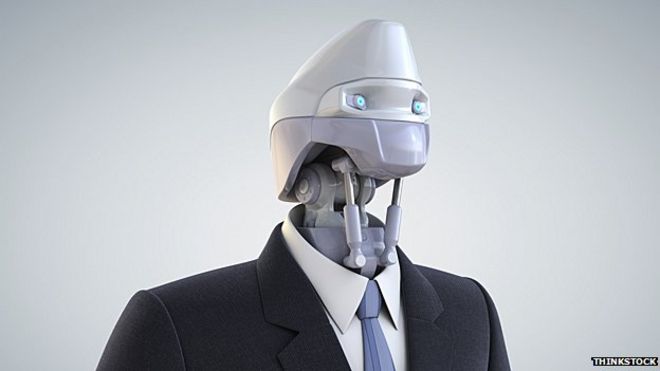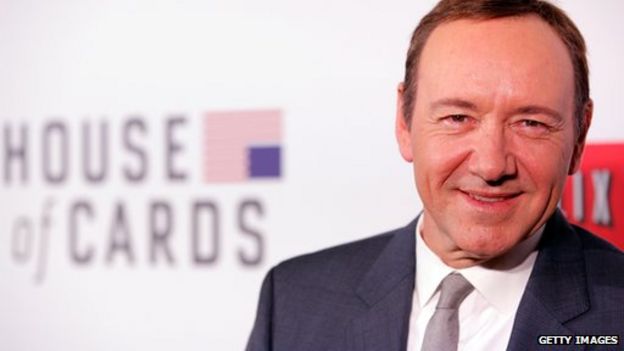Ever found yourself wondering whether your boss is human?
Haven't we all.
Now, with the march of artificial intelligence and robotics, it's becoming an increasingly valid question.
Algorithms - problem solving computer programmes - are, to put it bluntly, getting much better at doing our jobs than we are.
And it's not just in the tech sector where computers are becoming king.
Last year the LA Times published an article about an earthquake which was written by a computer programme.
School children in South Korea are being taught English by a machine called Robosem, and even the so-called oldest profession faces competition - a US firm called TrueCompanion claims to have developed the world's first sex robots, with the most basic model costing just $995 (£645).
But is there a danger that this brave new world is going to be a bit, well, dull?
Movies by numbers
The entertainment industry has already adopted an algorithmic approach to working out what we want to watch.
When TV and movie streaming service Netflix decided to start commissioning its own material, it turned not to Hollywood veterans, film critics or media forecasters, but to algorithms and user data.
A data trawl of the most-watched and loved content streamed by Netflix customers revealed three key ingredients - actor Kevin Spacey, director David Fincher and political dramas produced by the BBC .
So the firm commissioned a remake of 1990 BBC political thriller House of Cards, starring Kevin Spacey and directed by David Fincher. It became the first ever web series to win a prestigious Emmy award, with the first series receiving nine nominations.
"House of Cards is the most famous example of a data driven approach to creativity," said Luke Dormehl, film maker and author of The Formula: How Algorithms Solve All Our Problems, and Create More.
"Netflix commissioned an unprecedented number of these episodes - and paid upfront - rather than going down the traditional route, where you shoot a pilot, present to executives etc."
It is perhaps no wonder the company keeps its lucrative viewing figures and ratings information such a closely guarded secret - it has never made them public.
London-based firm Epagogix offers an AI analysis of movie scripts to predict how successful they are likely to be at the box office. It even claims to be able to identify "improvements" to boost a film's commercial value.
In theory this eliminates every film maker's worst nightmare - the expensive flop.
"If a film needs to make £10m and it makes £5m [at the box office] we say it's bombed," said Mr Dormehl.
"But if we had that data in advance and said, if you spend half the money making it, it will still make £5m... it opens the way for making mid-range films."
But where's the excitement, the joy of the surprise hit or chance discovery of the new?
Luke Dormehl says it opens up a world of different opportunities.
"As a film maker I think there are plenty of exciting possibilities," he said.
"It's exciting to have a script where you can tap into that data. Which scenes remind people of good times, which music cues do they like, when do they get up to make the tea....
"I'm excited about the possibility of films that change direction depending on who is watching them, or change narrative if you're not paying attention."



